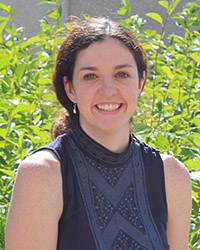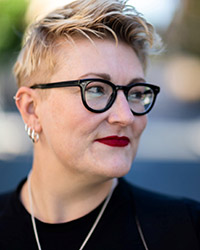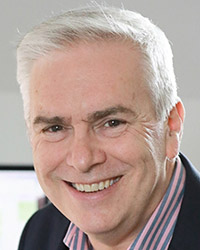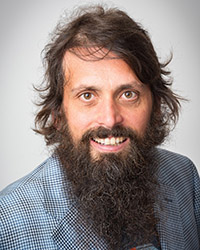Research Impact and Open Science Virtual Half-Day - Biographies

Sarah Neil-Stzramko
Sarah Neil-Sztramko is an Assistant Professor in the Department of Health Research Methods, Evidence and Impact and the Acting Scientific Director of the National Collaborating Centre for Methods and Tools. Sarah's research is informed by her academic training in Kinesiology, Population and Public Health, Knowledge Translation and Implementation Science. Her research focuses on understanding effective strategies to disseminate research findings and collaborating with knowledge users to design scalable implementation interventions. Her work aims to increase the uptake of evidence-based interventions by individuals and communities with a particular focus on cancer prevention and survivorship, and healthy aging. Sarah is passionate about building capacity for knowledge translation and evidence-informed decision-making.

Kelly Cobey
Dr. Kelly Cobey is a Scientist at the University of Ottawa Heart Institute where she serves as the Director of the Metaresearch and Open Science Program. She holds an appointment as an Associate Professor at the University of Ottawa in the School of Epidemiology and Public Health. Dr. Cobey holds a number of national and international leadership positions in the meta-research community. She is co-chair of DORA (Declaration On Research Assessment) which aims to drive the use of more responsible metrics to evaluate research and researchers, and presently sits of the Council of Canadian Academies Dual Use Research of Concern panel as an expert bringing open science perspective.

Alex Haagaard
Alex Haagaard is a design strategist living in so-called Kingston, Ontario. Their work specializes in digital accessibility, community engagement, and disability and health justice. They have lived with chronic pain since early childhood and this experience informs their interest in designing and advocating for system-level changes to how healthcare services are conceptualized, planned and delivered. Alex is currently a member of Pain BC's Putting the Pieces Together conference steering committee, and co-chair of the Chronic Pain Network's Knowledge Mobilization and Implementation Science Committee.

Jonathan Grant
Jonathan Grant is the Vice President for Strategic Initiatives at the King Abdullah University of Science and Technology (KAUST) in Saudi Arabia. In this newly established role, he helps advance KAUST's strategic vision to accelerate impact by strengthening its leadership in global and Saudi Arabian higher education. His efforts focus on transformative academic programming, fostering interdisciplinary collaboration, and cultivating strategic partnerships. In addition to spearheading these initiatives, Jonathan collaborates with senior leadership to align and progress the university's broader strategic goals.
Jonathan's expertise spans biomedical and health R&D policy, research impact assessment, evidence-based policymaking, and the evolving social purpose of universities in the 21st century. His extensive international experience includes shaping and implementing R&D strategies across the UK, Greece, Norway, Qatar, Oman, Abu Dhabi, Australia, Canada, and the USA.
Before joining KAUST, Jonathan founded Different Angles Ltd, a consultancy dedicated to maximising the social impact of universities and research. Over five years, he led diverse projects for universities and research funders worldwide, while also developing training programs focused on research impact and the civic mission of universities. Notably, his online program, Impact by Design, remains available through his website.
Prior to launching Different Angles in 2020, Jonathan served as a professor of public policy at King's College London. Joining in 2014, he established the Policy Institute and served as its Director until 2017. He then 'held the pen' in crafting King's strategic vision, Vision 2029. Subsequently, he became Vice President & Vice Principal (Service), overseeing the university's pioneering commitment to social responsibility. This included initiatives in social reform, research impact, service-led learning, volunteering, and environmental sustainability—key components of King's vision.
Earlier in his career, Jonathan was the President of RAND Europe from 2006 to 2012, where he significantly expanded the organisation's operations and co-founded the Cambridge Centre for Health Services Research, a collaboration with the University of Cambridge. Before joining RAND, he served as Head of Policy at the Wellcome Trust.
Jonathan is author of The New Power University: The Social Purpose of Higher Education in the 21st Century, published by Pearson in March 2021.

Eddy Nason
Eddy Nason serves as the Director for the Health Knowledge Area at The Conference Board of Canada. In this role, he spearheads the efforts of the health team, ensuring the delivery of high-quality, relevant, and impactful research and products to clients and stakeholders within the health sector. Eddy has provided guidance to policymakers, health system managers, private sector partners, and not-for-profit stakeholders on a wide array of health issues, ranging from health human resources to drug plan management, to patient-partnered clinical research. He is internationally recognized as an expert in research impact, having served as Program Director for the International School on Research Impact Assessment, contributed to the development of the precursor to the ResearchFish research impact system, authored the influential CAHS framework for ROI in health research, and advised international research systems on multiple continents.

Adrian Mota
Adrian Mota is the Associate Vice-President, Research Programs - Operations, at the Canadian Institutes of Health Research (CIHR). In this role, he is responsible for ensuring that CIHR supports and advances the highest international standards of excellence in health research. A strong proponent of continuous improvement, Adrian encourages his teams to take evidence-based approaches to the development, enhancement, and implementation of CIHR's funding opportunities and peer review process. Adrian first joined CIHR in 2005 and has held a variety of positions within the agency, including Acting Director of Knowledge Translation and Manager of Business Implementation. In the latter role, he led the design and implementation of large-scale reforms of CIHR's open funding competitions and peer review processes. He also led the development of new business systems aimed at strengthening CIHR's programs and policies.
- Date modified: